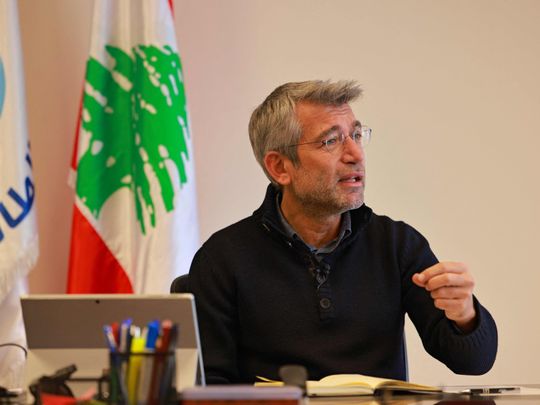
Beirut: Crisis-hit Lebanon will sign a deal with Jordan next week to bring in electricity via Syria to help ease gruelling power cuts, the energy minister has told AFP.
The agreement, which comes as the country grapples with round-the-clock power cuts, is part of a wider government effort to eventually provide state power for eight to 10 hours a day, up from just two now in most parts of the country.
“The deal is important primarily because it will increase state power supply, which is cleaner and cheaper” than electricity produced by “expensive and polluting private generators”, Walid Fayad told AFP in an interview on Thursday.
The minister said a visiting Jordanian delegation would sign the deal in Beirut next Wednesday before heading to Damascus, where Jordanian and Lebanese officials are set to sign a transit agreement with Syria.
The deal will provide Lebanon with up to 250 megawatts of electricity during the day and 150 megawatts at night, equivalent to a total of two additional hours of power, Fayad said.
Two years into Lebanon’s economic meltdown, the cash-strapped state is struggling to purchase fuel for its power stations.
With state power effectively non-existent, many rely on private generators, but prices have increased after the government lifted fuel subsides.
Lebanon has been importing fuel oil from Iraq to operate its power plants in recent months.
The government is also in talks with Egypt to import gas through the Arab Gas Pipeline, which passes through Jordan, Syria and Lebanon.
Beirut and Cairo are currently finalising commercial agreements so that the two sides can sign a deal by spring, Fayad said.
By importing Jordanian electricity, Iraqi fuel and Egyptian gas, Lebanon hopes to boost power output to eight to 10 hours a day in the coming months, Fayad added.
Lebanon’s crumbling electricity sector has cost the country more than $40 billion since the end of its 1975-1990 civil war.
“The solutions we are proposing will quickly boost power supply and will provide a sustainable solution for the country, especially with regard to Egyptian gas,” Fayad said.
Importing electricity from Jordan will cost about $200 million per year, he added, while importing gas from Egypt will cost about the same amount.
“We secured an initial $300 million from the World Bank and we are working to secure an additional $100 million,” Fayad said.












